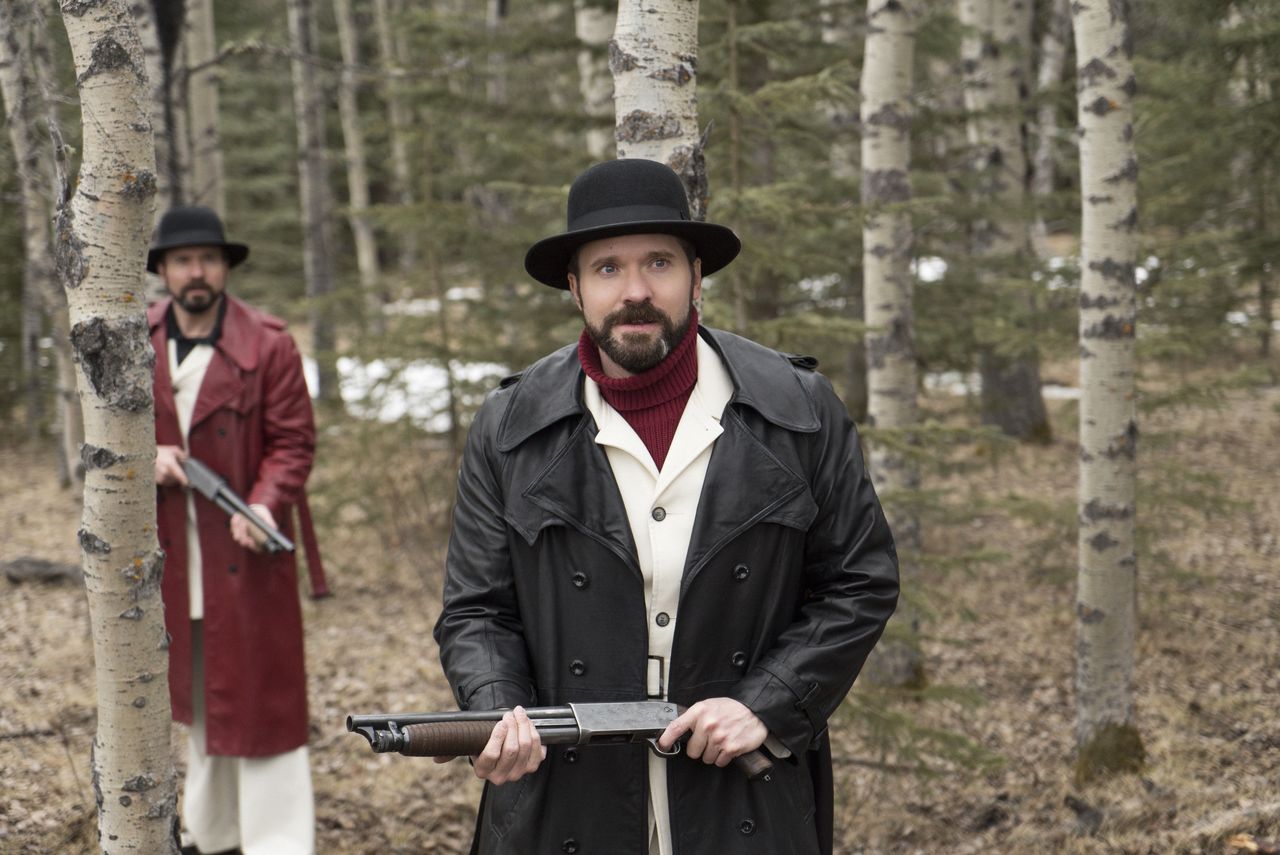The structural audacity of Fargo
We know the broadest strokes of this story's ending, but we don't know how we'll get there — and the overarching narrative structure makes it all but impossible to guess


TV shows tend to follow a familiar structure. Characters are introduced, and the amount of time we spend with them generally dictates how important they'll be to the overarching story. Pressure builds, storylines are woven together, and following a climax, on both an episode-by-episode and season-by-season basis, the story moves on. You can see it in everything from The Big Bang Theory to Empire to The Walking Dead. Even Game of Thrones, for all its unpredictability, has developed a fairly consistent structure. In each 10-episode season, you can bet that something truly crazy will happen in episode nine.
FX's Fargo, on the other hand, has consistently taken a more eccentric and unpredictable approach. And that's a big part of what makes it so terrific.
Following Floyd Gerhardt's declaration of war at the end of last week's "Fear and Trembling," this week's "The Gift of the Magi" wastes no time getting right to the bloodbath. In an opening montage cut with a variation of Ronald Reagan's famed "City on a Hill" speech, gun-toting members of the Gerhardt family launch an ambush on the Kansas City syndicate, killing ringleader Joe Bulo (Brad Garrett) and one of the two Kitchen brothers (among many, many other fatalities).
Subscribe to The Week
Escape your echo chamber. Get the facts behind the news, plus analysis from multiple perspectives.

Sign up for The Week's Free Newsletters
From our morning news briefing to a weekly Good News Newsletter, get the best of The Week delivered directly to your inbox.
From our morning news briefing to a weekly Good News Newsletter, get the best of The Week delivered directly to your inbox.
This is the kind of game-changer you'd expect as the climax to a season — or, at the very least, the climax of an episode. Instead, Fargo drops all the action at the very beginning of a midseason episode, and spends the rest of the hour exploring the more interesting side of violence: its dramatic and far-reaching consequences.
The roots of this fundamentally unpredictable approach can be traced back to Fargo's first season, which defied expectations with a late-season time jump that completely changed the context of the narrative. In the middle of the "The Heap" — the eighth episode of the 10-episode first season — Fargo suddenly and unexpectedly leaped a full year ahead. In the time that had passed, we learned, Molly Solverson and Gus Grimly had gotten married; Gus had retired from the police department and become a mail carrier; Lester Nygaard had successfully evaded imprisonment, remarried, and netted himself a cushy perch as Insurance Salesman of the Year; and the psychotic Lorne Malvo had remade himself as the charming "Dr. Michaelson" as part of an elaborate hit contract.
Fargo's second season hasn't jumped ahead in time — not yet, at least — but it has shifted our point of view often enough to create suspense about who and what matters. Lou Solverson, our protagonist (and the only guaranteed survivor among the main cast), would be the obvious person to investigate the pile of corpses left in the war between the Gerhardts and Kansas City — but he's stuck on a detail escorting presidential candidate Ronald Reagan (Bruce Campbell) through Minnesota.
Lou's peripheral role in the episode's narrative allows Fargo to engage in its customary existential searching without distancing itself from the intensity of the central conflict. When Lou winds up standing shoulder to shoulder with the charismatic presidential candidate at a urinal, he drops his customary stoicism and looks for some perspective. "Sometimes I… late at night… I wonder if maybe the sickness of this world… if it isn't inside my wife somehow," he muses. "The cancer. I don't know what I'm saying, except… Do you really think we'll get out of this mess we're in?" Reagan doesn't have any real answers for Lou — both because he's ill-equipped to answer the question, and because the question is unanswerable.
Lou's speech is the key to understanding both what we've seen so far and what we'll see in the episodes to come. Lou may be talking about his own situation, but the question of escaping this mess unscathed could come from nearly any of Fargo's protagonists. In a matter of weeks, Floyd has been forced to contend with the stroke of her husband, the death of her son, and the pressures of forces both external and internal. Ed Blumquist has seen all his dreams go up in smoke — first metaphorical, then literally. Each of these characters is at a crossroads, forced to make choices that will influence everything that happens next — and Fargo's unconventional narrative structure, with its peaks, valleys, and detours, makes it totally unclear when and how their paths will cross again.
Of course, Fargo's boldest structural gambit of all didn't even happen this year. It came in season one, when the older Lou Solverson (Keith Carradine) laid the groundwork for the story that's unfolding in season two:
"Had a case once. Back in '79. And I'd tell you the details, but it'd sound like I made 'em up. Madness, really. One after another. Probably, if you stacked [the bodies] high, could have climbed to the second floor. I saw something that year I ain't ever seen, before or since. I'd call it animal, except animals only kill for food. This was… Sioux Falls."
We're at the midway point of Fargo's second season, and there are countless directions in which the story might twist and turn. The Kansas City syndicate will surely seek retaliation against the Gerhardts. Dodd Gerhardt is all but openly preparing to mount a coup against his own mother. Ed's dream of owning the butcher shop is officially dead, and Peggy's much-vaunted Life Spring seminar — the possible location of another "Sioux Falls Massacre" — still looms on the horizon.
We know the broadest strokes of this story's ending, but we don't know how we'll get there — and the overarching narrative structure makes it all but impossible to guess.
Read more Fargo recaps:
- The radical women of Fargo
- The myth of Sisyphus
- The truth is out there: The UFOs and aliens on FX's Fargo, explained
- Minnesota Nice vs. Evil: The moral universe of FX's remarkable Fargo
Sign up for Today's Best Articles in your inbox
A free daily email with the biggest news stories of the day – and the best features from TheWeek.com
Scott Meslow is the entertainment editor for TheWeek.com. He has written about film and television at publications including The Atlantic, POLITICO Magazine, and Vulture.
-
 Store closings could accelerate throughout 2025
Store closings could accelerate throughout 2025Under the Radar Major brands like Macy's and Walgreens are continuing to shutter stores
By Justin Klawans, The Week US Published
-
 Crossword: February 20, 2025
Crossword: February 20, 2025The Week's daily crossword
By The Week Staff Published
-
 Sudoku hard: February 20, 2025
Sudoku hard: February 20, 2025The Week's daily hard sudoku puzzle
By The Week Staff Published
-
 Walter Isaacson's 'Elon Musk' can 'scarcely contain its subject'
Walter Isaacson's 'Elon Musk' can 'scarcely contain its subject'The latest biography on the elusive tech mogul is causing a stir among critics
By Theara Coleman Published
-
 Welcome to the new TheWeek.com!
Welcome to the new TheWeek.com!The Explainer Please allow us to reintroduce ourselves
By Jeva Lange Published
-
 The Oscars finale was a heartless disaster
The Oscars finale was a heartless disasterThe Explainer A calculated attempt at emotional manipulation goes very wrong
By Jeva Lange Last updated
-
 Most awkward awards show ever?
Most awkward awards show ever?The Explainer The best, worst, and most shocking moments from a chaotic Golden Globes
By Brendan Morrow Published
-
 The possible silver lining to the Warner Bros. deal
The possible silver lining to the Warner Bros. dealThe Explainer Could what's terrible for theaters be good for creators?
By Jeva Lange Last updated
-
 Jeffrey Wright is the new 'narrator voice'
Jeffrey Wright is the new 'narrator voice'The Explainer Move over, Sam Elliott and Morgan Freeman
By Jeva Lange Published
-
 This week's literary events are the biggest award shows of 2020
This week's literary events are the biggest award shows of 2020feature So long, Oscar. Hello, Booker.
By Jeva Lange Published
-
 What She Dies Tomorrow can teach us about our unshakable obsession with mortality
What She Dies Tomorrow can teach us about our unshakable obsession with mortalityThe Explainer This film isn't about the pandemic. But it can help viewers confront their fears about death.
By Jeva Lange Published